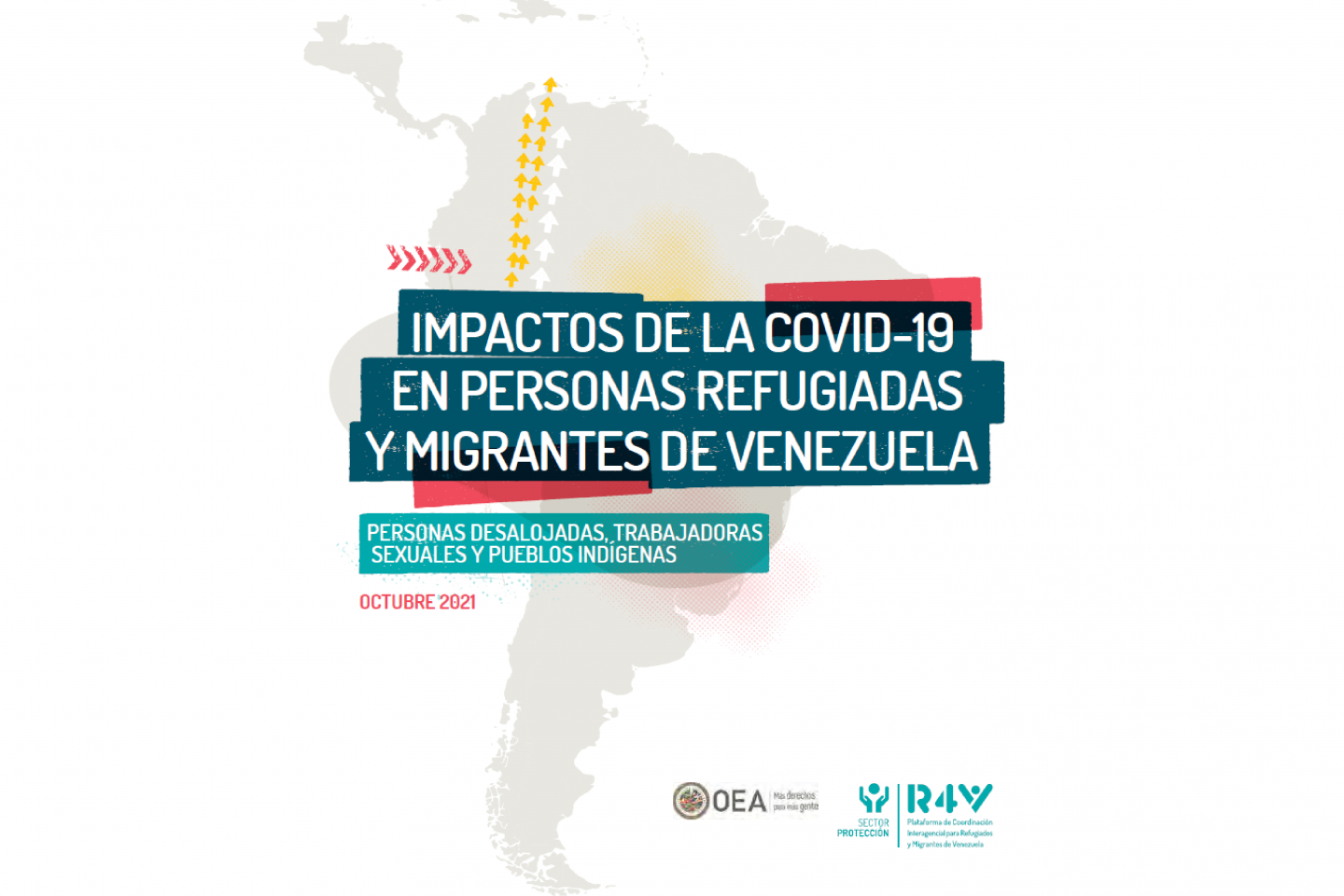OAS and R4V Platform report shows the impact of COVID-19 on specific groups of Venezuelan refugees and migrants

The report presents a diagnosis of the disproportionate impact of the pandemic on three population groups: evicted persons, indigenous peoples, and sex workers/persons in situation of prostitution.
Key findings:
- Xenophobia: The pandemic has exacerbated discriminatory and xenophobic attitudes towards refugees and migrants from Venezuela, especially evicted persons, sex workers/ persons in situation of prostitution, and indigenous peoples.
- Eviction and access to housing: Due to the pandemic, refugees and migrants from Venezuela lost their source of income. In many cases, they were forcibly evicted despite government measures prohibiting evictions. In some cases, women heads of households - especially sex workers and/or in a situation of prostitution - suffered sexual harassment and abuse by their landlords as a “measure” to stay in their homes. Indigenous peoples located in informal settlements, due to the lack of access to territory, were forcibly evicted without regard to international standards. As a consequence of the evictions, refugees and migrants from Venezuela have been forced to live on the streets, in areas with precarious security conditions, and in overcrowded situations.
- Access to asylum and migratory regularization: The lack of knowledge of the processes to seek asylum or regularize their migratory situation worsened due to procedures’ digitalization. This exposed refugees and migrants to risks of fraud and extreme vulnerability due to their irregular migratory situation. In the case of indigenous peoples, the information dissemination processes have not been adequate to their languages, oral tradition, and ethnic considerations. The lack of documentation increased the risks of labor exploitation and sexual violence.
- Access to decent work: The pandemic caused the precariousness of informal work conditions. It also impacted domestic violence and increased abuse and sexual violence against women, especially single mothers and transgender women who faced harassment, threats, persecution, and police violence.
- Access to health care: Refugees and migrants from Venezuela faced barriers in accessing care for COVID-19 or other diseases. This had a greater impact on the elderly, single women, children and adolescents, and sex workers and/or in a situation of prostitution, who were perceived as a source of infection. Children of sex workers and/or in a situation of prostitution and indigenous peoples suffered high levels of stigmatization and were unable to access emergency services.
- Mental health: The confinement measures particularly affected Venezuelan children and adolescents’ emotional and psychological well-being, hindering their adaptation process in the host communities. They also affected youth, who reported facing suicide risks, anxiety, and depression, particularly those with early motherhood/parenthood.
- Access to land and territory: Indigenous peoples faced obstacles in accessing land and territory. The lack of access to land directly impacts the cosmovision of the peoples, as well as their self-determination and self-government systems. This impact increases the risk of physical and cultural extinction. Many of them were forced to settle in public spaces and faced situations of persecution, threat and violation of their fundamental rights.
Methodology:
The document is based on testimonies of affected people, collected through 21 focus groups, five in-depth interviews, and seven feedback sessions in nine countries in Latin America and the Caribbean (Argentina, Brazil, Colombia, Curaçao, Dominican Republic, Ecuador, Guyana, Peru, Trinidad and Tobago).
The process included 138 refugees and migrants from Venezuela and approximately 30 workers from service provider organizations and/or national protection sectors of the R4V Platform. Testimonials from the participants are available in the report.
Betilde Muñoz-Pogossian, Director of the Department of Social Inclusion of the OAS Secretariat for Access to Rights and Equity: “From the OAS, we recognize the efforts undertaken by the States in welcoming refugees and migrants from Venezuela. However, it is necessary to work in coordination with other key actors, including NGOs, international cooperation and the private sector. This report provides recommendations for them to do so”.
Eduardo Stein, UNHCR-IOM Joint Special Representative for Refugees and Migrants from Venezuela: “The report is a testimony of how information can facilitate the design of a response with renewed assistance and protection strategies oriented to concrete needs. As the visibility of the crisis increases and the response calls on a greater diversity of actors, addressing the needs of the most vulnerable will continue to be our beacon”.
Read the report (in Spanish) here.
Press contacts:
- Ilaria Rapido Ragozzino, ACNUR, rapido@unhcr.org
- Daniela Rovina, OIM, drovina@iom.int

